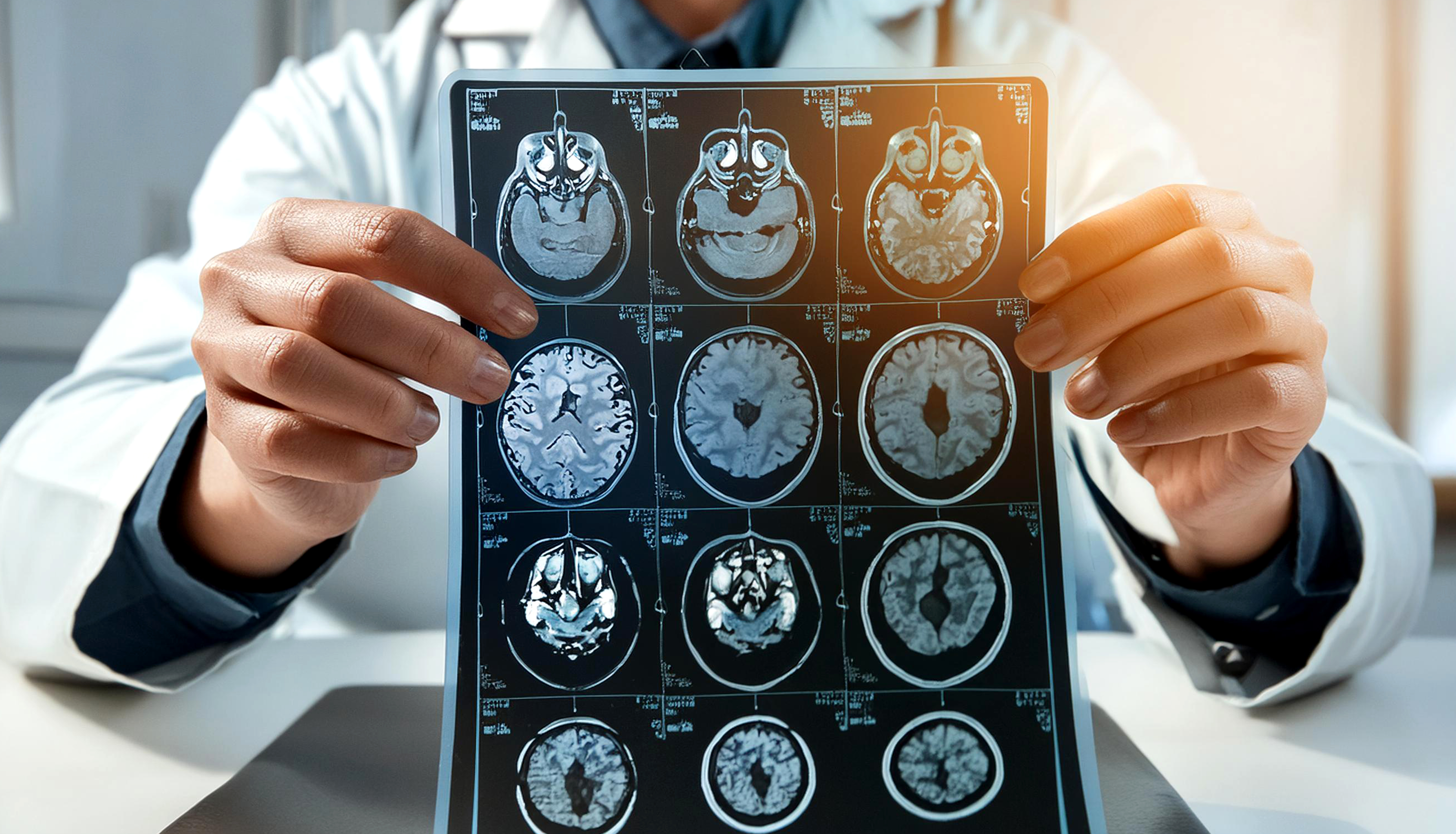Can Aphasia Be Cured?

DISCLAIMER: This article is for informational purposes only and is not a substitute for medical advice, diagnosis, or treatment. If you or a loved one is experiencing communication difficulties, consult a qualified healthcare professional for a personalized evaluation.
Aphasia is a complex and life-altering communication disorder, impacting millions of people across the globe. At its core, aphasia disrupts the brain’s intricate language networks affecting how a person uses and understands language. While symptoms and severity of communication difficulties vary greatly from person to person, aphasia can make it hard to speak, comprehend information, read, or write. For individuals living with aphasia and their families, the natural and pressing question is: Can it be cured?
What Exactly Is Aphasia?
Aphasia is caused by disruptions to the parts of the brain involved in language. Alterations to the brain’s language networks often result from a stroke, traumatic brain injury, brain tumors, or progressive neurological conditions. Unlike speech difficulties that affect pronunciation, voice quality, or fluency, aphasia affects the brain’s language processing systems—making it hard for people to find the words they want to say, speak using complete grammatical sentences, or to understand what’s being said to them as easily as they once did.
It is important to note that aphasia doesn’t affect intelligence. Many people with aphasia know exactly what they want to communicate but struggle to efficiently retrieve the words they need to express the complexity of their ideas. This disconnect can be deeply frustrating, exhausting, and emotionally taxing—not just for the individual, but also for their loved ones. The emotional impact of language loss is a significant consideration in the recovery process—one that healthcare professionals and care partners must recognize and address with sensitivity.
Moreover, aphasia can look very different from one person to another. Different types of aphasia manifest depending on the location and extent of brain injury incurred. For instance, someone who experienced injury to the area of the brain known as Broca’s region in the left frontal lobe tends to exhibit preserved understanding of most of what’s being said but may use halting speech and struggle to speak in full sentences. Others may have sustained primary impact to the left temporal region of the brain. This type of aphasia, known as Wernicke’s aphasia, is typically characterized by fluent speech but the content of what is said may lack meaning and comprehension is impaired. Global aphasia, the most severe form, affects both understanding and expression.
Is There a Cure?
While there is no universal “cure” for aphasia, meaningful recovery is possible.
Today’s best aphasia treatment practices emphasize comprehensive rehabilitation approaches —such as an Intensive Comprehensive Aphasia Program (ICAP)—which focus on strengthening and retraining communication skills using highly personalized, tailored techniques. Speech-language pathology remains the cornerstone of intervention, utilizing evidence-based techniques to stimulate neural plasticity and maximize communication recovery potential.
Recovery outcomes can vary widely and are shaped by many factors, including the severity and location of the brain injury, the timing and intensity of treatment, the presence of supportive social networks, and an individual’s own motivation. Yet with personalized, evidence-based therapy, many individuals with aphasia experience substantial improvements—some even returning to typical or near-typical communication abilities.
Recovery doesn’t always mean restoring language exactly as it was before the injury, but it often means retraining skills to hold conversations, express needs, and connect meaningfully with others. With the right support, individuals with aphasia can make remarkable progress and continue to engage in those activities in life that bring joy and are fulfilling.
How Is Aphasia Treated?
Because aphasia presents differently in every individual, therapy must be personalized to reflect each person’s unique language profile. The type of aphasia present—and the challenges faced with speaking, understanding, reading, or writing—depend on the location and extent of brain injury. While aphasia does not impair cognitive abilities like memory or attention, or motor speech functions such as apraxia or dysarthria, these challenges often co-occur and must be addressed holistically in therapy.
The goal of therapy is to help each individual leverage their strengths to rebuild language skills, learn new strategies, and shape their environment in ways that support successful communication in everyday life.
Each person with aphasia requires a different combination of treatment techniques and intensities, depending on their specific symptoms. However, all therapeutic approaches at Open Lines® Intensive Comprehensive Aphasia Program (ICAP) are grounded in the principles of neuroplasticity and motor learning—the science of how the brain reorganizes and forms new connections through meaningful, repeated practice.
Following an in-depth evaluation, a licensed speech-language pathologist will determine which mix of structured exercises and functional activities will best support recovery.
Examples of therapeutic techniques may include:
- Script training to improve automatic speech and use of high frequency content for conversational fluency
- Sentence generation tasks to strengthen word retrieval within meaningful language.
- Reading and writing exercises such as oral reading for language in aphasia (ORLA) and Attentive Reading and Constrained Summarization-Writing (ARCS-W) to support comprehension and expression
- Role-play conversations that mirror real-world social or professional interactions
- Group therapy approaches including aphasia support groups address the social and emotional dimensions of aphasia recovery. Peer support networks create environments where individuals can practice communication skills while building confidence and reducing isolation commonly associated with language disorders.
Therapy isn’t limited to drills. Open Lines® Intensive Comprehensive Aphasia Program (ICAP) integrates functional communication activities designed to restore confidence and competence in daily routines, from navigating personal relationships to managing responsibilities at work or in the community.
The Power of Neuroplasticity
The concept of neuroplasticity fundamentally shapes our understanding of aphasia recovery potential. The human brain demonstrates remarkable capacity for reorganization, creating new neural pathways and compensatory mechanisms following injury (Kiran and Thompson, 2019). This biological phenomenon provides the scientific foundation for optimistic rehabilitation outcomes.
Research utilizing advanced neuroimaging techniques reveals how intensive therapy can stimulate brain reorganization. Areas surrounding damaged regions may assume language functions, while connections between brain hemispheres can strengthen to support communication recovery (Kiran, Erin & Johnson, 2019). The timing, intensity, and type of intervention significantly influence the extent of neuroplastic changes.
Critical factors affecting neuroplastic recovery include:
- Age at time of injury
- Overall health status
- Severity and location of brain damage
- Access to comprehensive rehabilitation services
- Family and social support systems
- Individual motivation and engagement levels
Understanding these variables helps healthcare teams develop realistic expectations while maintaining hope for meaningful improvement. The brain’s capacity for change extends well beyond traditional recovery timelines, with some individuals experiencing continued progress years after initial injury.
What Does Recovery Look Like?
For many individuals and families, understanding the difference between recovery and a cure is essential. While a complete return to pre-stroke language abilities may not always be realistic, meaningful recovery—defined by functional communication and a fulfilling life—is absolutely achievable. Recovery from aphasia is rarely linear. Some people make swift early gains, while others improve steadily over time. What matters most is setting goals that reflect an individual’s lifestyle and priorities—whether that’s returning to work, sharing stories with grandchildren, or ordering a favorite coffee.
Many people with aphasia go on to live full, successful lives. At Open Lines, everyone participates in a one-to-one individual assessment, wherein a licensed speech-language pathologist will carefully review the skills and daily demands of a person’s job or routine. Therapy plans will include targeted goals and guided practice to help patients regain or adapt those skills with confidence and proficiency.
At the heart of treatment is the belief that people can live well with aphasia. Therapy focuses on building practical strategies, strengthening confidence, and promoting independence—even if some language challenges remain. With the right support, meaningful communication and engagement in life are absolutely within reach.
Looking Beyond Therapy: Whole-Person Support
Managing aphasia goes far beyond the therapy room. Support systems—both formal and informal—play a vital role in recovery. At Open Lines, we encourage families and care networks to become active participants in the process by learning communication strategies, joining support groups, and seeking emotional care.
Psychological support can also be crucial. Many people with aphasia experience grief, frustration, or even depression as they adjust to life after brain injury. Access to counseling and mental health resources can help individuals stay motivated and build resilience during their recovery journey.
Hope Through Progress
Aphasia may not have a simple cure, but there is a clear path forward. With evidence-based therapy, a strong support system, and a personalized treatment plan, individuals with aphasia can make meaningful progress in communication—reconnecting with those people activities that matter most and continuing to live a successful life.
If you or someone you love is living with aphasia, we’re here to help. Our team offers innovative, individualized programs designed to support communication recovery and whole-person well-being.
Contact us today at (212-430-6800), email in**@*******es.com, or fill out our contact form to learn more about our Intensive Comprehensive Aphasia Program (ICAP) and how we can support your journey.
For additional resources and support, please see our Intensive Comprehensive Aphasia Program (ICAP) webpage or visit the National Aphasia Association website.
Get in Touch With Open Lines®














